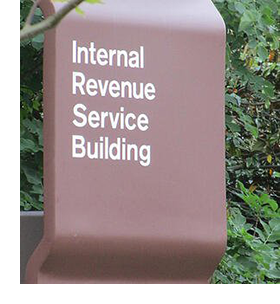On Aug. 8, President Donald Trump issued a memorandum on deferring payroll tax obligations in light of the ongoing COVID-19 Disaster, which directed the Treasury Department to suspend collection of the employee portion of Social Security taxes from Sept. 1 through the end of 2020.
IRS Announces Inflation-Adjusted Standard Deduction Amounts for 2020
Zinner & Co. Tax Team Taxes - Individual , deductions , income tax , IRSThe IRS issued its annual inflation adjustments for key tax items for the tax year 2020. Among them are new amounts for standard deductions.
For the tax year 2020, the standard deduction for a married couple filing jointly will be raised from $24,400 to 24,800. For single taxpayers and married couples filing separately, the standard deduction will be raised from $12,200 to 12,400. For heads of households, the standard deduction will be $18, 650.
Margin tax rates will change as follows:
Lessons from this Tax Season
Zinner & Co. Tax Team deductions , taxes , income tax , IRS , Tax Cuts and Jobs Act of 2017Well…it’s over. This year’s individual tax return filing deadline has come and gone. As the dust settles and we take stock of this year’s tax season, a few trends have appeared.
Ask the Expert: Should I Take the Educational Tax Breaks or My Child?
Zinner & Co. Tax Team education , tax services , deductions , income taxShould I Take the Educational Tax Breaks or My Child?
5 Reasons You Shouldn’t Do Your Own Taxes This Year
Zinner & Co. Tax Team tax services , deductions , income tax , IRSEvery year, a group of adventurous souls decides: This is the year I’m going to prepare my own tax return! While we certainly applaud an individual’s right to establish self-reliance and try to save money on preparation fees, it’s rarely a good idea.
Ask the Expert: Should I Take the Educational Tax Breaks or My Child?
Zinner & Co. Tax Team education , deductions , income taxWho should take the educational tax breaks, me or my child?
That’s a great question! The answer is: It depends.
Tax season is here, once again! I anticipate that this season will be different than tax years of the recent past due to the Tax Cuts and Jobs Act (“TCJA”). While a lot has changed, there are a few things about tax season that never change – mistakes.
IRS Increases Mileage Rates for 2019
Zinner & Co. Tax Team business travel expense , deductions , IRS , Tax Cuts and Jobs Act of 2017The IRS has announced the 2019 standard mileage rates used for calculating deductible costs for operating an automobile for business, charitable, medical or moving purposes.
ALERT: Be Wary of States Circumventing the $10,000 SALT deduction limitation
Zinner & Co. Tax Team Taxes - Planning, Rules and Returns , Taxes - Individual , deductions , taxes , IRS , tax avoidance , Tax Cuts and Jobs Act of 2017Current Law:
The Tax Cuts and Jobs Act of 2017 limits individual taxpayer's state and local tax (SALT), itemized deduction to $10,000 (including real estate taxes). The previous law allowed an unlimited deduction. This change may be detrimental to many individual taxpayers who relied heavily on these deductions in the past.
State Work-Arounds:
Some states have considered "work-arounds" to combat this limitation. Select states (California, Connecticut, Illinois, New York and New Jersey, thus far) have created state
Tax planning – Why is this year any different?
Zinner & Co. Tax Team Taxes - Corporate & Business , Taxes - Individual , deductions , income tax , Tax Cuts and Jobs Act of 2017Every year at this time, you start to hear more about the importance of year-end income tax planning in radio and television commentary. For many people with more complex businesses or investments, the beginning of the 4th quarter of the year signals the time to start to organize their tax documents and to set-up an appointment with their advisors to review results.
This year is different! This year, tax planning should be important to everyone, not just for those that have complex tax situations. The implementation of the Tax Cuts and Jobs Act of 2017 has impacted every taxpayer. While we have all heard about it, not everyone has an applied working knowledge of what the impact will be in the first annual income tax filing season, which begins in about three months.
About Us

Since 1938, Zinner has counseled individuals and businesses from start-up to succession. At Zinner, we strive to ensure we understand your business and recognize threats that could impact your financial situation.
Recent Blog Posts
Categories
- 1031 Exchange (2)
- 401k (2)
- 529 plan (4)
- ABLE Act (1)
- account systems (3)
- accounting (8)
- Affordable Care Act (8)
- alimony (2)
- American Rescue Plan Act (1)
- Ask the Expert (5)
- Audit and Assurance Department (13)
- audits (8)
- Bank Secrecy Act (1)
- banks (1)
- Barbara Theofilos (6)
- Beneficial Ownership Information (1)
- Bitcoin (1)
- block chain (2)
- BOI (3)
- Bookkeeping (1)
- Brett W. Neate (28)
- budgets (1)
- Bureau of Worker's Compensation (12)
- Business - Management, Issues & Concerns (50)
- business income deduction (3)
- business succession (7)
- business travel expense (3)
- business valuation (5)
- capital gains (2)
- careers (7)
- cash flow (2)
- Child Tax Credit (2)
- Chris Valponi (8)
- City of Cleveland (1)
- Cleveland COVID-19 Rapid Response Fund (1)
- Cleveland Rape Crisis Center (2)
- college (3)
- Community (24)
- Compliance (1)
- Coronavirus (24)
- Corporate Transparency Act (1)
- COVID-19 (30)
- Credit card fraud (5)
- credit reporting (2)
- cryptocurrency (2)
- CTA (2)
- cybersecurity (16)
- dead (1)
- DeAnna Alger (6)
- death (2)
- debt (4)
- deductions (14)
- Deferring Tax Payments (4)
- Department of Job and Family Services (2)
- depreciation (1)
- Digital Tax Payment (1)
- divorce (4)
- DOMA (3)
- Economic Impact Payments (2)
- Economic Injury Disaster Loan (4)
- education (8)
- EIDL (1)
- electronic filing (4)
- Electronic Tax Payments (2)
- Emergency Working Capital Program (1)
- employee benefit plan auditor (1)
- Employee Leave (2)
- Employee or Independent Contractor (6)
- Employee Retention Credit (3)
- employment (2)
- ERC (3)
- Eric James (8)
- Estates, Gifts & Trusts (48)
- expenses (5)
- Families First Coronavirus Response Act (2)
- FASB (1)
- FBAR (1)
- FDIC coverage (1)
- Federal Assistance (4)
- filing (3)
- financial planning (8)
- Financial Planning - College (9)
- financing (3)
- Firm news (119)
- first responders (1)
- FMLA (1)
- foreign assets (3)
- fraud (38)
- FSA (1)
- fundraising (9)
- Gabe Adler (1)
- gift tax (5)
- HDHP (2)
- health care (3)
- home (2)
- home office (1)
- Howard Kass (2)
- HRA (1)
- HSA (5)
- identity theft (32)
- income (1)
- income tax (57)
- independent contractor (1)
- Inflation (1)
- Insurance (7)
- internal control (4)
- international (2)
- Intuit (1)
- investments (4)
- IRS (88)
- jobs (5)
- John Husted (1)
- K-1 (1)
- Laura Haines (3)
- Layoff (2)
- Layoffs (1)
- leadership (3)
- lease accounting standards (1)
- life insurance (1)
- LLC (3)
- Loans (2)
- longevity income annuities (1)
- Lorenzo's Dog Training (1)
- Magic of Lights (1)
- management advisory (3)
- manufacturing (2)
- Matt Szydlowski (3)
- medical (7)
- Medicare (2)
- mergers and acquisitions (1)
- Mike DeWine (2)
- Millennial Concepts (2)
- minimum wage (1)
- NAIOP (1)
- National Defense Act (1)
- non-profit reporting (10)
- non-profits (38)
- not-for-profit (26)
- ODJFS (1)
- office (1)
- ohio (13)
- Ohio business owners (18)
- Ohio Department of Jobs and Family Services (3)
- Ohio Department of Taxation (3)
- Ohio Incumbent Workforce Training Voucher Program (1)
- Online Tax Payment (3)
- Operations (2)
- OPERS (1)
- owners of foreign entities (1)
- partnerships (5)
- passwords (1)
- Paycheck Protection Program (9)
- payroll (8)
- penalties (3)
- pension (2)
- personal finance (2)
- planning (4)
- ppp (7)
- Productivity (5)
- Qualified Business Income (1)
- quickbooks (10)
- real estate (14)
- record retention (2)
- records (2)
- Reporting (1)
- Republican National Convention (1)
- Retirement Planning & IRAs (53)
- Richard Huszai, CPA (5)
- RITA (1)
- Robin Baum (6)
- RRF (1)
- S Corporation (1)
- SALT (8)
- SBA (8)
- scams (12)
- SECURE 2.0 Act (1)
- security (6)
- SharedWorks (1)
- Shutdown (3)
- Silver Linings (9)
- simplified employee pension (1)
- Small Business (5)
- SMB (12)
- Social Media (1)
- social security (4)
- Speaker Series (2)
- spouse (1)
- start ups (8)
- Stay at Home Order (3)
- Steven Mnuchin (1)
- Sue Krantz (6)
- SVOG (1)
- tangible property (1)
- tax (27)
- tax avoidance (12)
- Tax Credit (7)
- Tax Cuts and Jobs Act of 2017 (31)
- Tax Exempt (1)
- Tax Holiday (1)
- Tax Interns (2)
- tax services (28)
- taxes (45)
- Taxes - Corporate & Business (104)
- Taxes - Individual (117)
- Taxes - Planning, Rules and Returns (188)
- TechCred (1)
- technology (7)
- The CARES Act (6)
- The SOURCE (1)
- tiag (3)
- transaction advisory (2)
- Treasury Department (5)
- tuition (3)
- U.S. Department of the Treasury (1)
- U.S. Small Business Administration (6)
- Unclaimed Funds (1)
- Unemployment Benefits (4)
- withdrawls (2)
- withholding (6)
- Workers Comp Billing Changes (1)
- Zinner & Co. (32)
- Zinner News (30)












